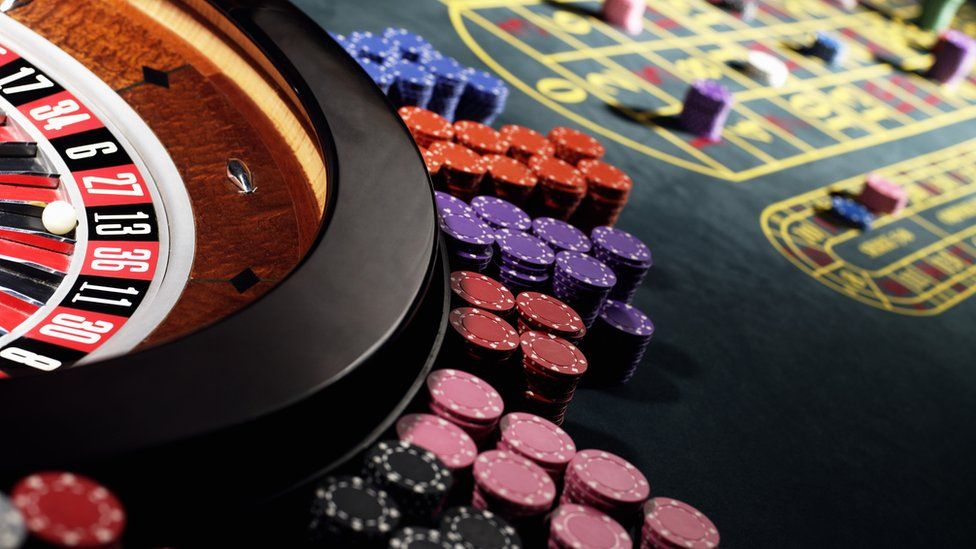
Casino games have captivated players for centuries, pulling them into a universe of adventure, fortune, and prosperity. From the blinking lights of video slots to the strategic intensity of card tables, these experiences offer a special mixture of amusement and exposure. However, beneath the facade of this sparkle and glamour lies a complex relationship of math that determines every outcome and choice made within the gambling establishment.
Understanding this link between casino games and numerical principles not only boosts the playing experience but can also help players make informed choices. Whether you are a occasional player or a dedicated fan, recognizing the numerical strategies at play can offer important insights into likelihood, ratios, and approaches, ultimately affecting how one approaches these games of luck.
Mathematical Likelihood in Gambling
In the world of casino games, statistical probability plays a vital role in determining outcomes and guiding player decisions. Every activity has a distinct set of rules and a particular probability framework that influences its mechanics. For instance, in games like roulette, players must grasp the chances of landing a certain number or shade. The likelihood of certain occurrences occurring can be computed, and this understanding can significantly affect betting strategies.
Gambers also need to be informed of the house advantage, which is the mathematical advantage that gambling establishments hold over gamblers in the long term. This advantage differs across different games. In 21, expert players can use strategies to minimize the casino advantage to as little as 1 %, while in games like slots, the casino advantage can be significantly greater. Understanding the house edge allows gamblers to make informed choices about which activities to participate in and how much to bet.
Additionally, likelihood is essential in the concept of risk versus gain in betting. Every wager carries a particular risk level, and gamblers must evaluate the possible return against that risk. Games like poker require gamblers to not only assess the odds of their own showing winning but also to evaluate the probabilities of their rivals’ hands. By applying mathematical concepts to their strategy, gamblers can enhance their chances of winning and engage more effectively in the thrilling realm of gambling games.
Anticipated Value in Casino Activities
When talking about gambling activities, one of the fundamental ideas rooted in math is the expected worth. This statistical measure assists gamblers grasp the possible results of their bets over time. In simple terms, expected worth (EV) calculates the mean amount a gambler can anticipate to win or suffer per bet if they were to play the activity many times. Each game has its unique EV, affected by the odds and the house edge, which indicates the advantage that the gambling establishment holds.
For example, consider a game like roulette. The anticipated value can be calculated based on the specific bet made. If a player bets on a individual number, the return is 35 to 1, but the true chances of success that bet are 1 in 37 (in European the roulette game). This results in a negative anticipated value, indicating that, on average, players will lose money over time when playing this type of bet. Grasping this concept allows gamblers to make better informed choices about which activities and wagers may be more favorable.
Additionally, the investigation of anticipated worth can lead to improved money management. Gamblers who comprehend the mathematics behind their games are often able to set practical goals. By acknowledging their potential losses and profits, they can adjust their playing strategies appropriately, which may improve their total gambling experience. As a consequence, anticipated value serves as a crucial tool for both beginner and experienced gamblers to navigate the often volatile nature of casino games.
Approaches and Chances: The Arithmetic Behind Winning
In casino games, understanding the probabilities is crucial for players attempting to enhance their opportunities of winning. Each contest has its own distinct set of probabilities that dictate winning outcomes, and these statistics are often found in the game’s guidelines or payout schedules. For example, in activities like blackjack, players can boost their chances through strategies such as tracking cards, which is based on arithmetic concepts to gain an advantage over the house. By educating themselves with the chances, gamblers can make more knowledgeable decisions on when to place bets and when to fold.
Additionally, the idea of expected outcome has a critical part in casino strategies. Average outcome assesses the average outcome of a bet over the long run, allowing participants to judge whether a certain wager is worth taking. For example, video slots have a set payout percentage, which can show the typical return a player can anticipate on their bets. By opting for games with higher average outcomes, gamblers can minimize the house advantage, enhancing their potential returns in the long run.
In conclusion, successful gamblers often employ a mix of luck and math strategy to improve their gaming experience. Ga179 While chance can’t be controlled, managing a betting strategy based on mathematical insights can lead to more favorable outcomes. By making use of techniques such as bankroll management and game selection, gamblers can leverage mathematics to maneuver through the unpredictable nature of gaming, making the most of their efforts and resources at the tables.
